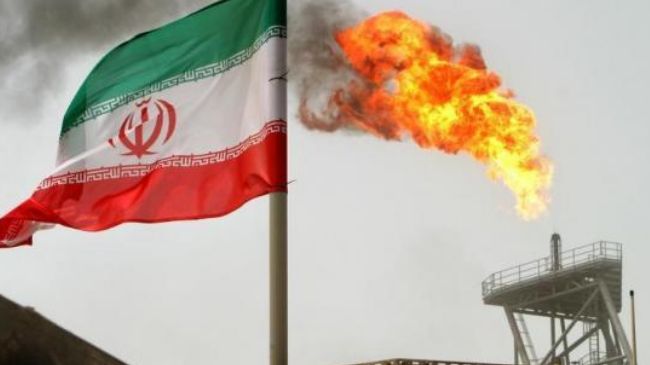Iranian economy to flourish if nuclear dispute solved

By Sara Rajabova
The ongoing talks on Iran's nuclear program and the preliminary deal achieved between the country and the world powers have positively affected Iran's foreign relations and economy.
Iran's energy exports to foreign countries tend to rise after the Geneva deal, inked last November.
Iran's oil exports to its top four Asian customers increased by 17.2 percent in February compared to a year ago, Reuters reported on March 31.
The report said Iran's four biggest buyers - China, India, Japan, and South Korea - bought 1.37 million barrels per day (bpd) of Iranian crude, up from 1.17 bpd a year ago.
China, Iran's biggest oil customer, increased its Iranian oil imports by 6 percent, reaching more than 552 thousand bpd last month.
South Korea also doubled its crude imports from Iran to over 290,000 bpd.
Iranian oil imports by Japan rose by 21.7 percent, reaching 260,820 bpd in February, while Iran's oil exports to India declined by 8.7 percent to around 266,000 bpd.
Iran's crude oil exports have been rising over the past months, ever since Tehran reached the breakthrough deal with six world powers -- the United States, Britain, France, Russia, and China plus Germany-- over its nuclear energy program.
Under the Geneva agreement, the six countries agreed to provide Iran with some sanctions relief in exchange for Tehran agreeing to limit certain aspects of its nuclear activities during a six-month period.
Iran, an OPEC member, holds the world's third-largest proven oil reserves and the second-largest natural gas reserves.
The country's total in-place oil reserves have been estimated at more than 560 billion barrels, with about 140 billion barrels of recoverable oil.
Heavy and extra heavy varieties of crude oil account for roughly 70-100 billion barrels of Iran's total reserves.
Foreign companies voice their intention to resume their activity in Iran from time to time, especially in the energy sector.
Since the beginning of the new year, parliamentary delegations and high-ranking officials of several European countries visited Iran to discuss possible investment opportunities in the country.
Moreover, the lifting of some sanctions imposed on Iran's economy and the absence of new sanctions have created chances for reviving the country's economy.
Thus in its first regular assessment of Iran after more than two years, the International Monetary Fund (IMF) predicted a positive growth in the country's economy before the end of 2015.
The Iranian government especially aims to boost the country's energy sector by increasing exports and attracting new investments.
Iranian President Hassan Rouhani has recently said Iran's oil exports meet the targets since he took office last August.
He noted that Iran's revenues are close to the real figures, adding that tax revenues have been more than the predicted amount.
The Iranian government is also working on development of the country's gas fields.
The National Energy Fund of Iran allocated €500 million to domestic oil projects in the past Iranian calendar year, IRNA reported.
Over half of the sum has been invested in the development of the South Pars gas field, especially in phase 19, the report shows.
South Pars is part of a wider gas field that is shared with Qatar. The larger field covers an area of 9,700 square kilometers, 3,700 square kilometers of which are in Iran's territorial waters (South Pars) in the Persian Gulf. The remaining 6,000 square kilometers, referred to as the North Dome, are in Qatar's territorial waters.
The Iranian gas field contains 14 trillion cubic meters of natural gas, about 8 percent of the world's reserve, and more than 18 billion barrels of LNG resources.
Iran has the world's fourth-largest proved national reserves of oil - most of it cheap to produce - and is home to the biggest proved reserves of natural gas, some 18 percent of the world's total.
Experts have predicted economic growth in Iran's economy in case Tehran and the world powers reach a final agreement over Iran's nuclear program.
Experts have said an increase can be expected in both Iran's oil and non-oil exports if more sanctions are lifted; however, the country has to do its best to attract foreign capital and technology and adopt reforms in its economy.
Here we are to serve you with news right now. It does not cost much, but worth your attention.
Choose to support open, independent, quality journalism and subscribe on a monthly basis.
By subscribing to our online newspaper, you can have full digital access to all news, analysis, and much more.
You can also follow AzerNEWS on Twitter @AzerNewsAz or Facebook @AzerNewsNewspaper
Thank you!
